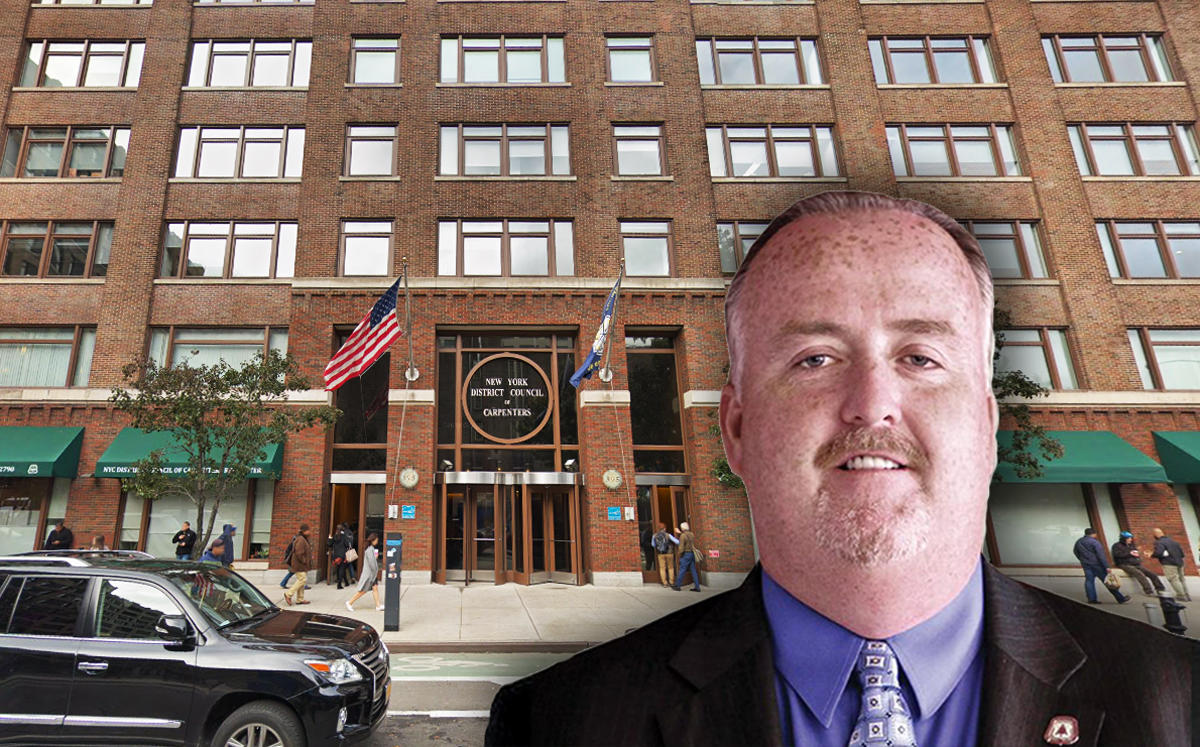It’s been nearly a decade since several members and leaders of the city’s carpenters’ union were last indicted on racketeering and fraud charges. Since then, the New York City District Council of Carpenters has implemented several changes to help keep the group corruption-free. But some think the union hasn’t gone far enough.
During a status conference in Manhattan Federal Court on Friday, Donna Clancy, an attorney for two fired union members, said the organization’s independent monitor, Glen McGorty, failed to take immediate action over accusations against the group’s then-president. She said that a female employee, who still works for the District Council, notified human resources of inappropriate behavior by Steve McInnis, who resigned in February amid unspecified misconduct allegations. In a letter to Judge Victor Marrero earlier this month, Clancy said McInnis had stepped down following allegations of sexual harassment.
McInnis had been re-elected to his post in late December, and Clancy said McGorty was aware of the allegations before that point. The worker’s complaints were ignored, Clancy said, and she was forced to continue working under “hostile conditions.”
“She should’ve been taken away from working with this person,” Clancy said.
In a letter to the judge earlier this week, McGorty said there had been rumors that an employee complained to human resources about McInnis, but said no such report was made until Dec. 18. He launched an investigation at that point because “allegations of McInnis’ conduct finally came to light in a sufficiently credible, specific and actionable manner.” He noted that Clancy’s clients — Michael Donnelly, a former labor organizer, and Peter Corrigan, a former business agent and Local 212 member — had notified the union’s investigator about the rumors but both also had “ample personal reasons to discredit” McInnis. (Corrigan’s uncle was part of an opposing campaign in the election, and Donnelly blamed McInnis for his being fired, according to McGorty.)
Though Clancy asked the court to intervene to assure that her clients didn’t face retaliation from the union, she ultimately agreed to bring the issue to the union’s inspector general, a new watchdog position within the organization. Clancy declined to comment further after the conference concluded.
A recurring theme of Friday’s conference was the issue of the union’s monitorship, which is a result of a 1994 consent decree with the federal government to help weed out the influence of organized crime in the organization. But even after a monitor was appointed, problems persisted. In a 2011 report — two years after the organization’s leader was indicted — the union’s-then monitor noted that mob ties still loomed large.
On Friday, Executive Secretary-Treasurer Joseph Geiger noted that in the past four years, the union created two watchdog positions — inspector general and chief compliance officer — and have taken other steps to assure that “corruption that may be lurking out there” doesn’t find its way back in. He didn’t specifically address the allegations made by Clancy but noted that issues with certain union members persisted.
“There are still some dissident members who will stop at nothing to undermine the leadership team,” he said.
Marrero asked McGorty at what point the union will be able to operate without a monitor. McGorty said that he hopes his role is much less “intrusive” by the end of his current term, which ends in March 2019. Still, he said the requirements of the 1994 consent decree — which barred union officials from affiliating with organized crime, among other things — would remain a permanent fixture. He also said that an independent party will always be needed to oversee the union’s elections. Ultimately, though, it’s not yet clear when the union will be monitor-free.
“My goal was to be the last monitor,” McGorty said. “I don’t know if that will happen.”
